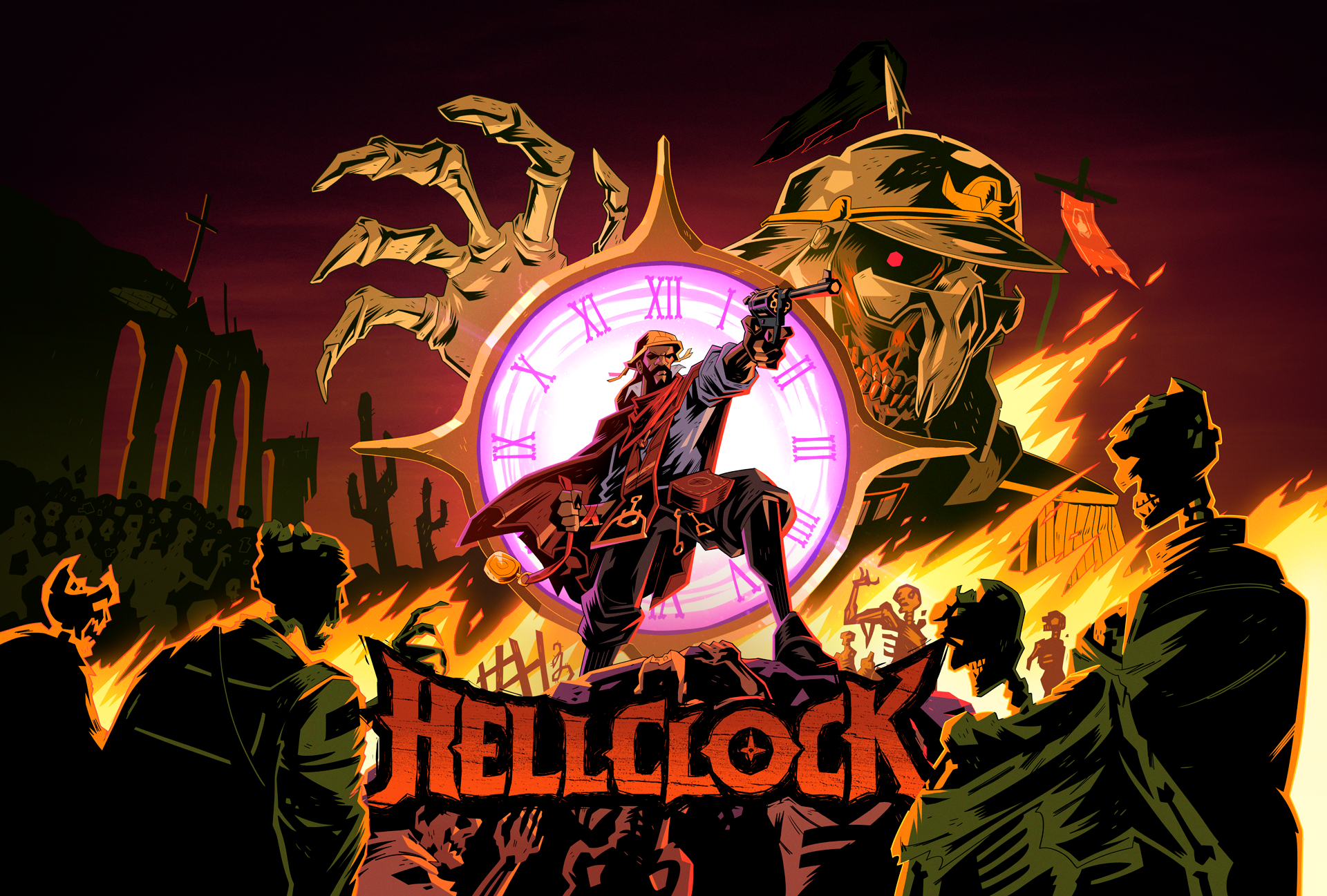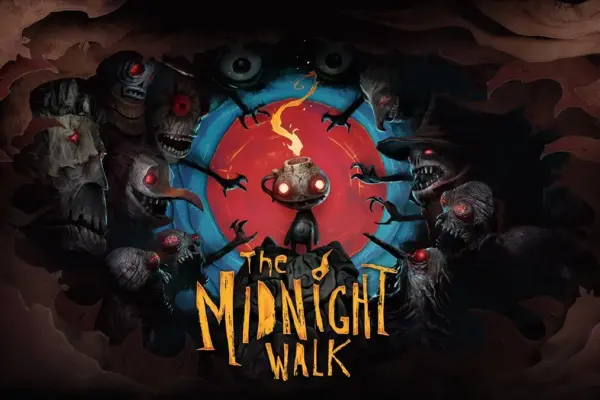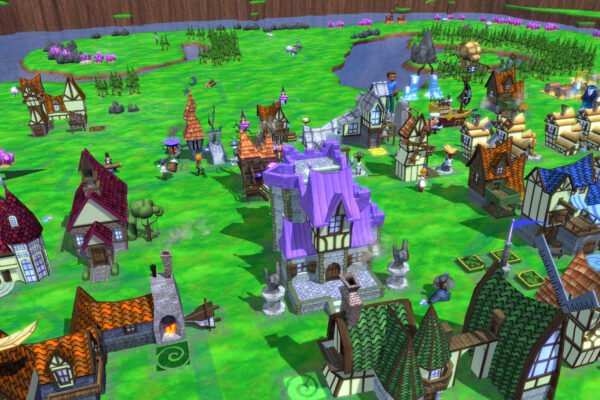This review follows Output Lag’s comprehensive review methodology.
About Hell Clock
- Developer
- Rogue Snail
- Publisher
- Mad Mushroom
- Release Date
- July 22, 2025
- Platforms
Where to Buy
The concept of clicking to move in a game was never appealing to me—so unappealing that I’ve consistently steered away from all-time classics like Diablo and World of Warcraft. With most of my game time spent on fast-paced hack-and-slashes like Hades and Dead Cells, the feeling of watching my character move pixels at a time felt like watching paint dry. So I’d be lying if I said my excitement for the world, visuals, and story of Hell Clock wasn’t shrouded in an air of “blegh.” That is, until I took my first steps toward hell and pulled the trigger.
Hell Clock is an ARPG roguelike by Brazilian studio Rogue Snail. Honing their action roguelike craft through their Relic Hunters series, Hell Clock represents a distinct tonal 180 for the indie team. The game takes inspiration from the very real and very tragic War of Canudos, taking place right after the 1897 conflict between the First Brazilian Republic and the residents of Canudos.
Instead of the conflict being incited purely by greed, nationalism, and religious persecution, supernatural forces are at play. If you’re not familiar with this moment in history, I cannot recommend enough diving into the rich history of Canudos. Not only is it an incredibly relevant piece of history, but learning the story of its people adds a much-needed layer of authenticity to the setting, characters, and mechanics. From Candomblé deities to relics evoking Catholic prayer, with layers of Santería throughout, there’s no shortage of historical easter eggs to discover.
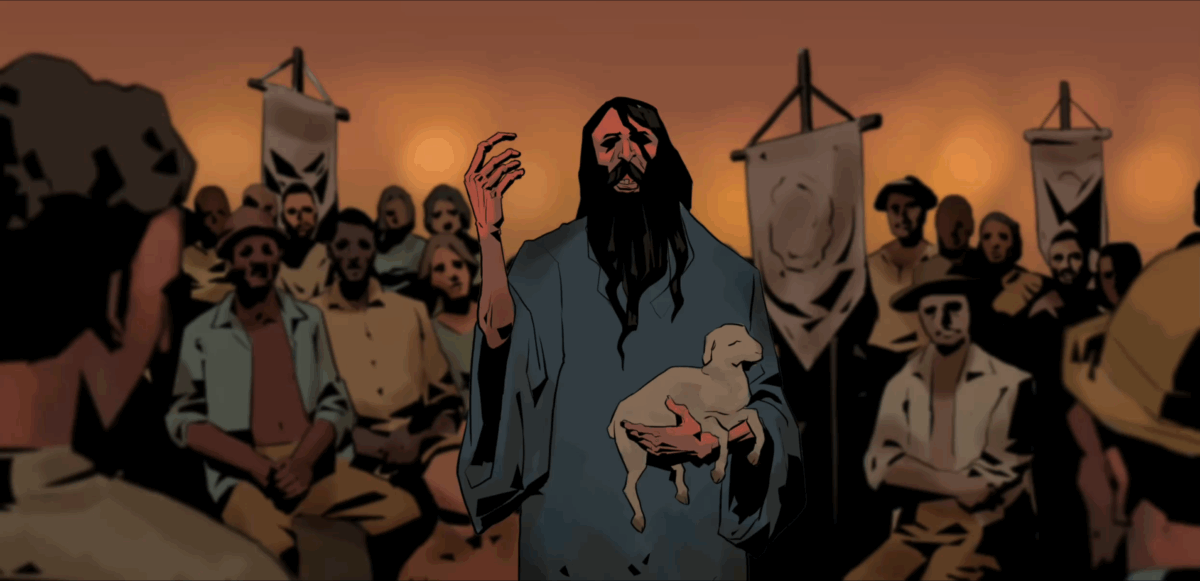
The Lore Paradox
Ironically, reading long scripts of text on screen is one of the biggest reasons I’ve steered clear of the ARPG genre. So discovering that reading further into the lore was optional hit me with a strong punch of reverse psychology. I guess there are worse ways to get tricked into doing my history homework.
To make the setting even more compelling, your character Pajéu is a jaded detective-type armed only with a revolver, a handful of spells, and a one-track mission to save his mentor’s soul from the depths of hell. Given how heavy the setting is, there’s something refreshing about having a main character who has less than zero fucks to give. He has bullets, and there are demons who need a free trip to…wherever you go after you die in hell.
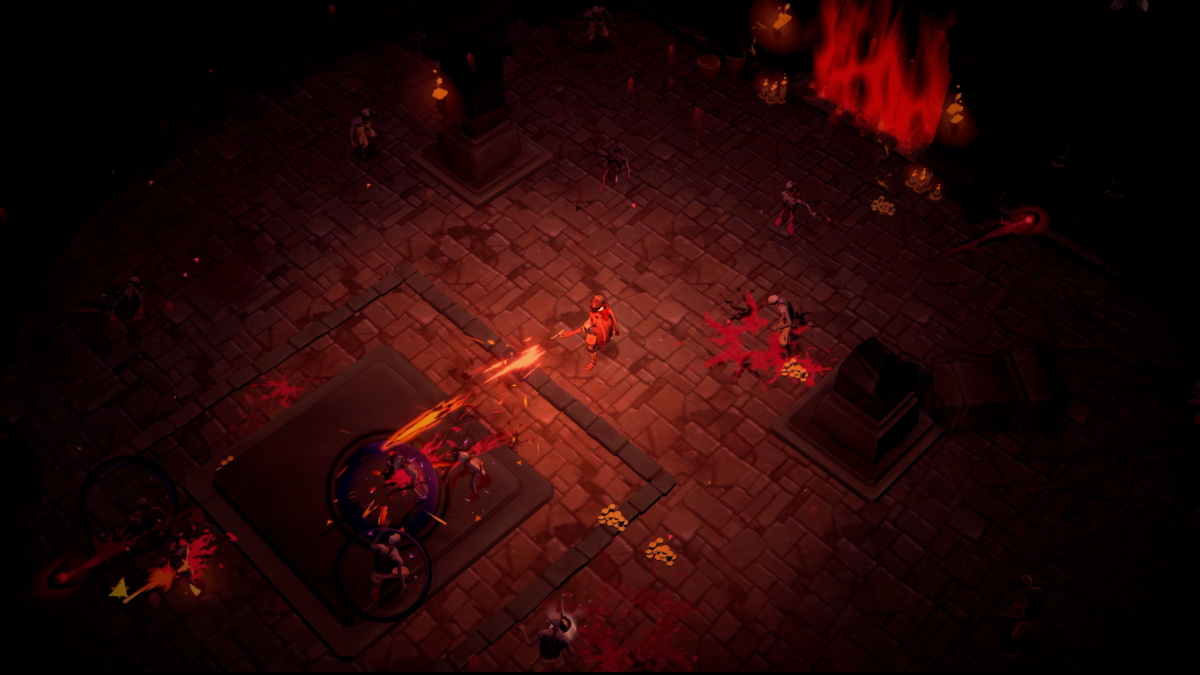
The Combat and Customization
Your tools for sending demons to their final destination are distinct, impactful, and offer a decent layer of customization. ARPGs have a nasty habit of overwhelming players with enough menus, stats, effects, and synergies to make a PhD in statistics feel like a film degree. Luckily for me and my film degree, Hell Clock’s relic and constellation system feels perfect for the roguelike pick-up-and-play feel the devs are going for. I’m a sucker for a Tetris-style inventory system, though I can see it feeling limiting for many players.
What contradicts the streamlined design of the inventory and skill management is a progression system that feels like it took too much inspiration from its ARPG roots. Poor drop rates, slow progress, and long periods between new unique items reflect poorly on the game’s flow.
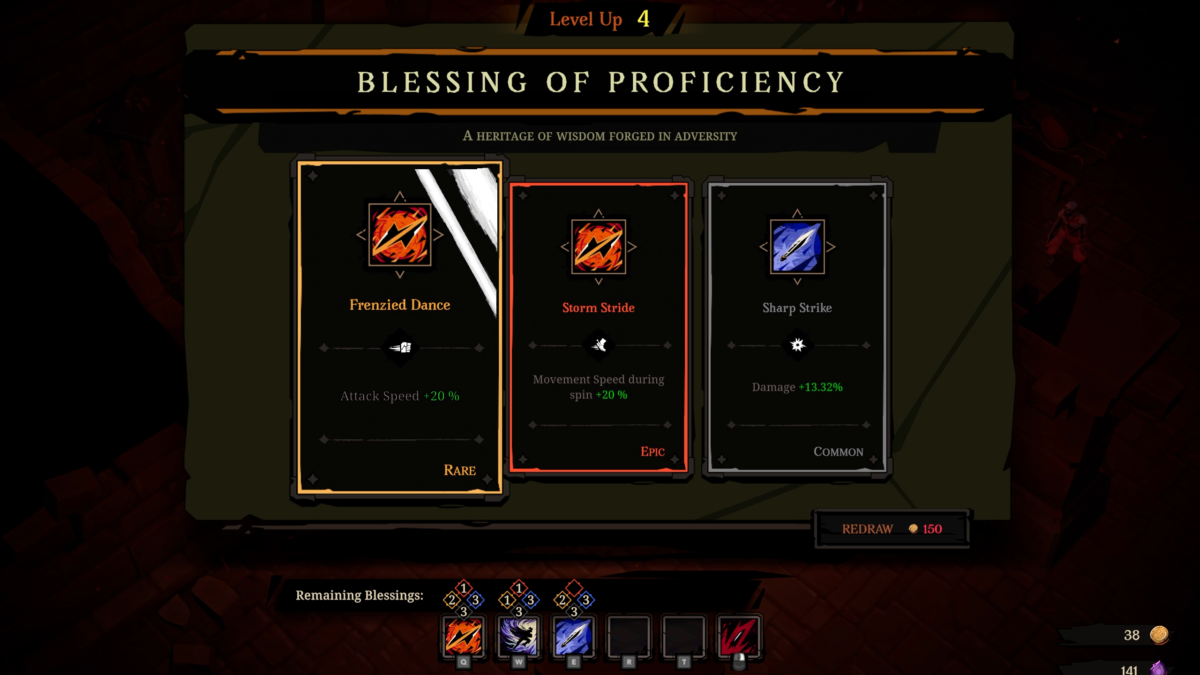
The Clock Conundrum
Hell Clock’s core countdown mechanic—where a clock literally counts down to your demise as soon as you enter the dungeon—adds a unique layer of anxiety to the mix. While optional, this mechanic feels necessary to the complete experience. I wish the thought of turning the damn clock off hadn’t crossed my mind throughout the entire first act. Having additional time locked behind the constellation tree makes for some painful early runs.
This mechanic does feel a bit out of place for a click-movement style ARPG. I imagine there aren’t parkour racetracks in Diablo for a reason. What pains me most about the clock is how damn good the combat feels. There were many runs where my bloodlusted murder high was cut unceremoniously short by the timer hitting zero. This compounds as scaling hits serious walls at various points in the game. Spending too much time trying to cheese an enemy stronger than you by hitting the ole reliable shoot-shoot-dash leaves you with no time to continue the run. I could see this being a huge turnoff for players already on the fence about trying the game. The clock being optional saves this from being a much larger negative.
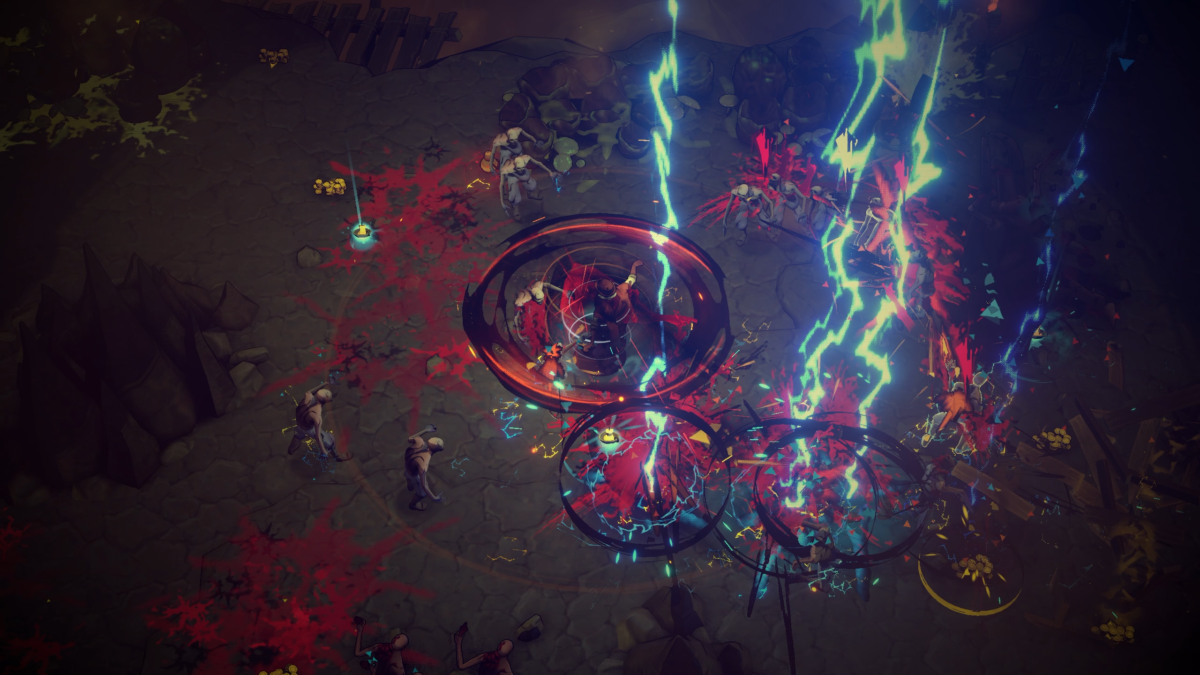
Endgame Concerns
Instead, the biggest hesitation I have with recommending Hell Clock at full price is its endgame content. ARPGs are well known for being infinitely playable. Yes, a lot of that time is spent grinding, reading, and doing calculus just to beat one dungeon floor, but for many, that’s why they pay the price of admission. As of the time of writing this review, Rogue Snail has announced some large content updates coming in the next couple of months. Which is great, but leaves a poor taste in my mouth when anticipating long-term support for the game. Not all games are meant to be played forever. But what’s painful is that Hell Clock’s progression, pacing, and story all suggest that it wants to take up a lot of time for a long time to come.
Playing a significant amount of Hell Clock on my OLED Steam Deck gave me a real nostalgic PSP-era feel. Being able to just pick up and play a run between work meetings and diaper changes was a sweet surprise that I know other aging gamers will appreciate.
The flaws being what they are, Hell Clock is an easy recommendation at almost any sale price. There’s so much to love in such a tight, lovingly crafted package that I already have a list of friends to gift it to once it goes on sale. Between the setting, combat, and ease of entry, I’d recommend wishlisting it and keeping the sales notification locked in so you can pick this one up when the price is right.
Note: Literally the day this review went live, Rogue Snail released another update with more end-game content, so we may do a part 2 of this review!
This review is based on a retail build of the game provided by the publisher.
